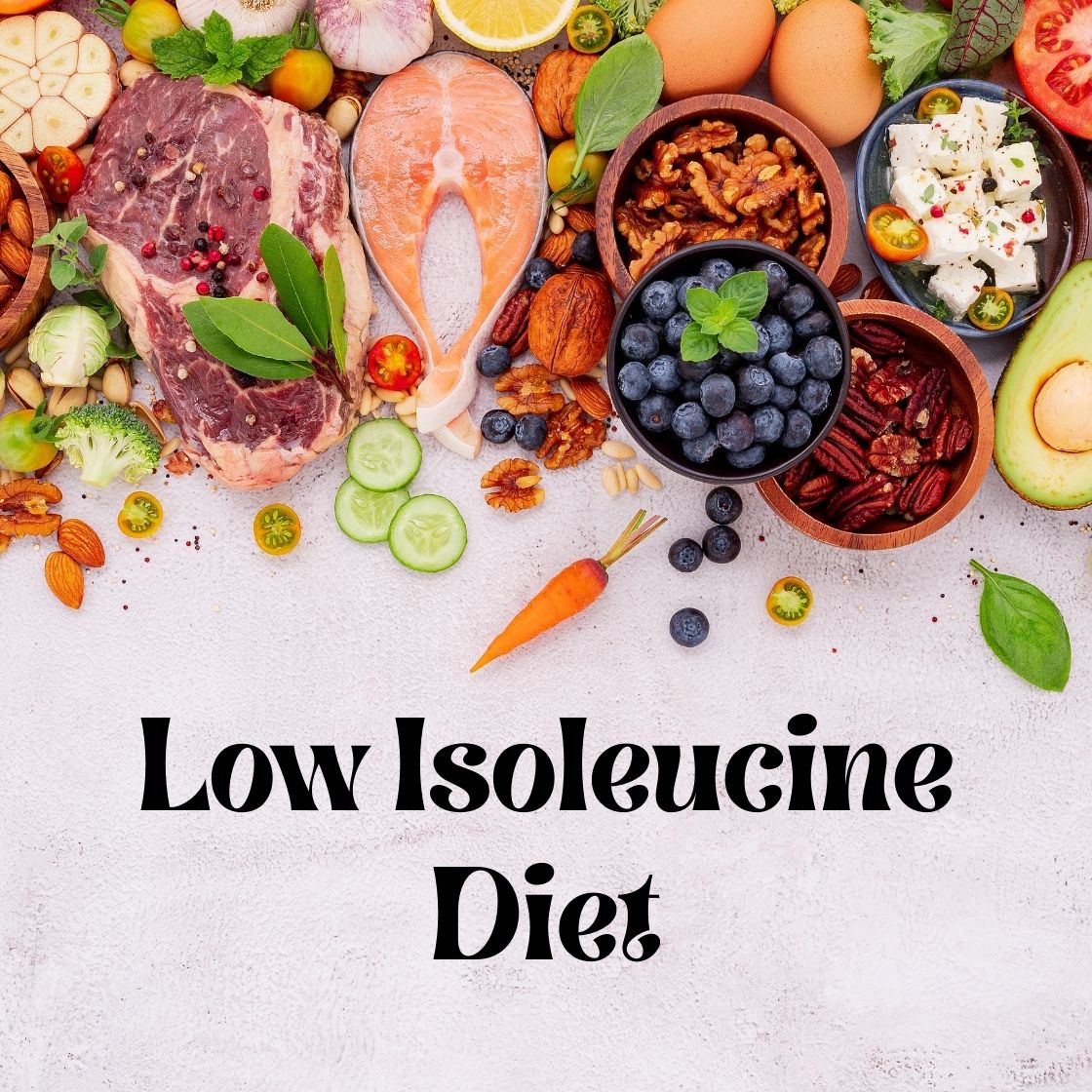Article: Low Isoleucine Diet: What It Is, Benefits, and How to Follow It

Low Isoleucine Diet: What It Is, Benefits, and How to Follow It
What Is a Low Isoleucine Diet?
Isoleucine is one of the three branched-chain amino acids (BCAAs), alongside leucine and valine. It plays a key role in muscle repair, energy metabolism, and blood sugar regulation. However, recent studies suggest that reducing isoleucine intake may have positive effects on metabolic health and longevity.
A low isoleucine diet involves reducing dietary intake of isoleucine-rich foods—mainly animal proteins—to potentially improve insulin sensitivity, support weight management, and extend lifespan.
Why Reduce Isoleucine?
Research conducted on rodents has shown that diets low in isoleucine can:
-
✅ Improve insulin sensitivity
-
✅ Reduce fat accumulation
-
✅ Enhance energy expenditure
-
✅ Delay age-related metabolic decline
One study published in Cell Metabolism revealed that mice fed with isoleucine-restricted diets had lower body weight and improved glucose control, despite consuming the same number of calories as the control group.
Isoleucine-Rich Foods to Limit
To follow a low isoleucine diet, it’s important to reduce or carefully monitor intake of the following:
-
🥩 Red meat (beef, lamb)
-
🍗 Poultry (chicken, turkey)
-
🐟 Fish (tuna, salmon)
-
🧀 Cheese and other dairy products
-
🥚 Eggs
Isoleucine-Low Alternatives
Instead of high-isoleucine foods, focus on:
-
🍚 Whole grains (quinoa, brown rice, oats)
-
🥬 Leafy greens (spinach, kale)
-
🍠 Root vegetables (sweet potato, carrots)
-
🥒 Legumes (lentils, chickpeas—moderate portions)
-
🥥 Healthy fats (olive oil, avocado in moderation)
It's not about eliminating protein, but about modifying the protein source and amount.
Is the Low Isoleucine Diet Right for You?
This diet is still experimental and mainly studied in animal models. It may hold promise for:
-
People interested in anti-aging diets
-
Those looking to improve insulin resistance
-
Individuals with specific metabolic disorders (under medical supervision)
⚠️ However, a low isoleucine diet is not recommended for children, pregnant individuals, or athletes without expert guidance, as isoleucine is essential for muscle maintenance and growth.
Conclusion
The low isoleucine diet is gaining attention in the fields of aging and metabolic health. While more human studies are needed, early research indicates that strategic amino acid restriction could become a new frontier in nutrition science.
Before making any drastic dietary changes, consult with a healthcare provider or registered dietitian, especially if you have an existing medical condition.
References
-
Yu, D. et al. (2021). "The role of branched-chain amino acids in metabolism, health, and disease." Cell Metabolism, 33(5), 905–922. https://doi.org/10.1016/j.cmet.2021.03.006
-
Richardson, N.E. et al. (2021). "Restricting branched-chain amino acids to improve metabolic health in mice." Nature Metabolism, 3, 1164–1179. https://doi.org/10.1038/s42255-021-00449-5
-
Solon-Biet, S.M. et al. (2014). "The ratio of macronutrients, not caloric intake, dictates cardiometabolic health, aging, and longevity in ad libitum-fed mice." Cell Metabolism, 19(3), 418–430. https://doi.org/10.1016/j.cmet.2014.02.009


